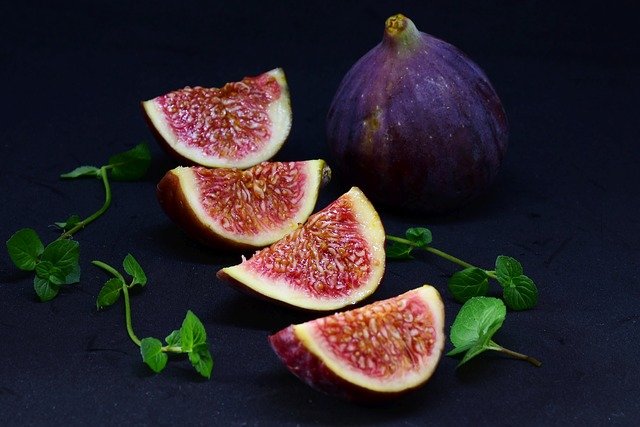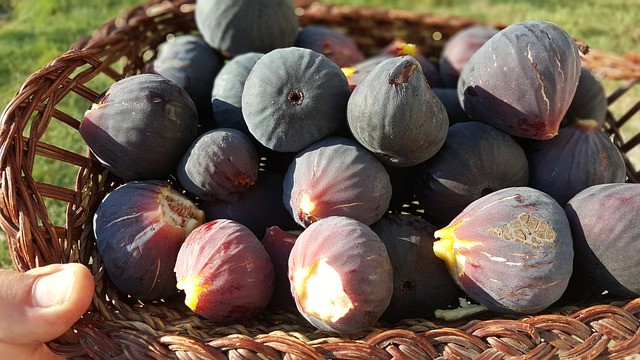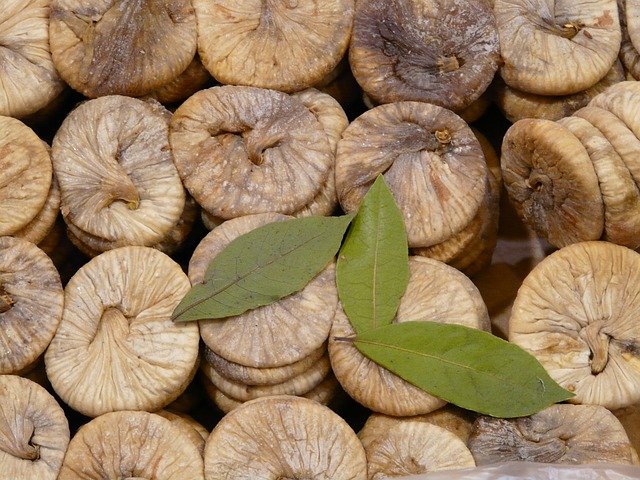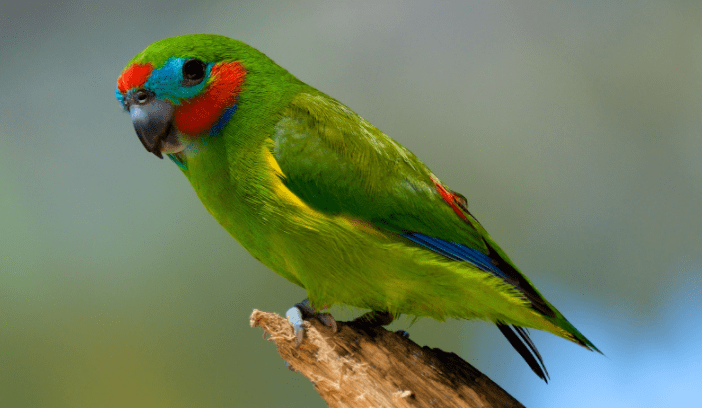Parrots naturally follow a healthy, Mediterranean style diet, heavy on fruits, nuts, and veggies. A more literal version of that diet would involve foods that originate from that part of the world.
The fig is a likely candidate that you may not have considered for your bird. But, now you’re probably wondering, can parrots eat figs?
Parrots certainly can eat figs… These sticky-sweet fruits are quite the beak-pleaser and, when offered in moderation, make a healthy addition to your bird’s diet.

How to Prepare Figs for Parrots to Eat
If you’re lucky, you live in a part of the world where a variety of fresh figs are available.
In that case, you and your parrot have several options to choose from. For most of us, Black Mission figs are probably all that’s on offer. However, don’t feel slighted.

While different figs come in an array of colours and subtle flavour variations, none of them is “better” for your bird than the others.
Yes, dried figs suffer some nutrient loss, but it’s small and will be more than made up for by other foods in your parrot’s diet.
It’s not the variety of figs you need to worry about, but the preparation. Some manufacturers take this already sweet fruit and coat it in more sugar.
These candied figs are like little sugar bombs and will blast your bird’s blood sugar levels sky-high. Never feed them these.
The same goes for salt, honey roasted, caramel-coated, and pretty much anything other than plain figs. Keep it simple, for the sake of your feathered friend.
Once you have your chosen figs in hand, you’ll want to clean them. Fresh figs are somewhat delicate, so rinse them, but don’t scrub them too vigorously.
Dried figs can stand up to a firmer cleaning, and should, since sulphur dioxide is often used in the drying process, and you want to minimize how much of that your parrot consumes.

Once cleaned, there are a few ways you should serve up this fruit.
Because it is so sticky and pulpy, you may want to set paper or cloth beneath your bird’s cage, and even move it to a location away from furniture that would be hard to clean.
Cutting the fig into bite-sized bits will help reduce the mess, as well as make eating it more convenient for your bird. Be careful, because over-large pieces can be choking hazards.
Alternatively, you can make a mash out of your figs. Chop them in small bits, mix them with other fruits or veggies, and mash them up with a fork or potato masher.
You can even pulse the mixture in a blender for a fig smoothie. These are great ways to incorporate all the vitamins and minerals your bird needs into one meal.
Are Figs Good for Parrots?
Figs have a great deal to recommend them to parrots nutritionally. There’s no better proof of this than the fig-parrot, so named for its diet made up primarily of the fruit in question.

Yet, it’s important to note that fig-parrots zero in on the tiny seeds of the plant in particular, which lessens how much of the sugary flesh they consume.
For other, non-specialist pet parrots, you will have to impose a limit yourself.
One whole fig is a good, safe bet, but modify the amount to fit your bird’s overall diet and feeding habits. The fig parrot, for instance, would need 3 whole figs — but this is because it doesn’t eat most of the fruit.
Parrots enjoy the sugar in figs for the energy it provides them, but this plant is full of healthier nutrients than fructose. In fact, it has a higher fibre and mineral concentration than all common fruits, veggies, and nuts.
That fibre can be a blessing and a curse to a parrot. They don’t require nearly as much as we do, and it’s benefits to digestion can be undercut by this material’s laxative effect. Just one more reason to limit fig consumption.
When it comes to vitamins, your bird will benefit from all the fig has to offer, including:
- Vitamin A
- Vitamin E
- Vitamin K
Your cawing comrade’s heart will beat soundly thanks to the assistance provided by enough vitamin A, and they’ll experience optimal liver function.
Vitamin E keeps cells functioning longer, essentially slowing the ageing process, and vitamin K make sure blood clots properly so your bird won’t bleed out from the tiniest of wounds.
All 3 of these vitamins are antioxidants, with additional benefits to your bird’s overall wellness.
The exceptionally high mineral content in figs guarantees your parrot will get adequate amounts of:
- Calcium
- Iron
- Magnesium
- Potassium
Polly’s plumage will pop with vibrant colours thanks to iron’s impact on pigmentation.
Meanwhile, your bird’s bones and metabolic functions will benefit from both the calcium and magnesium, while the potassium keeps glucose production, and fluid balance, well managed.